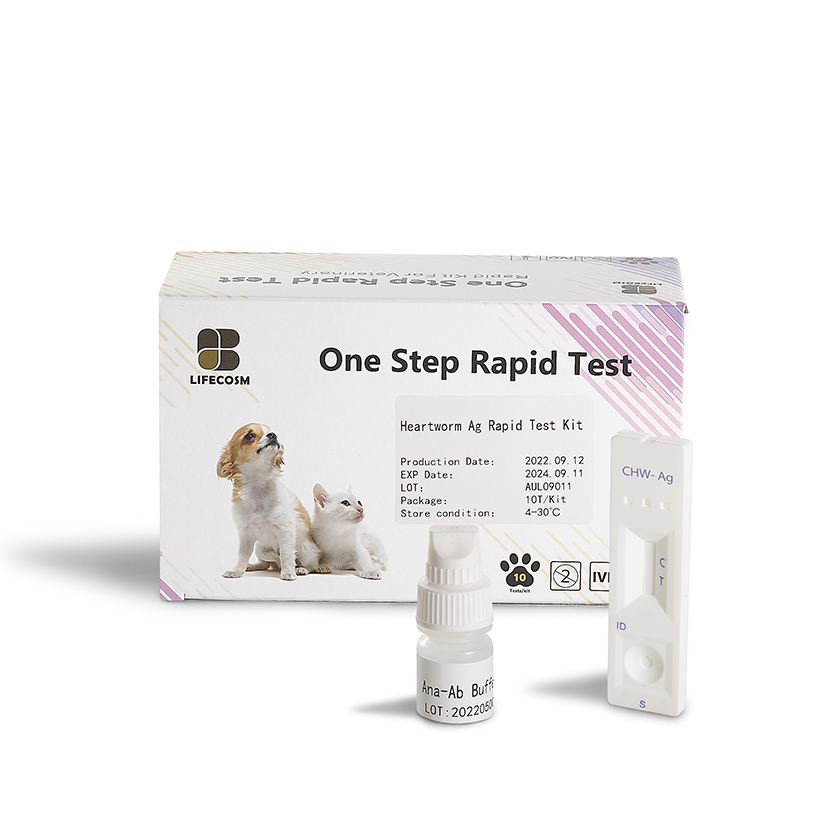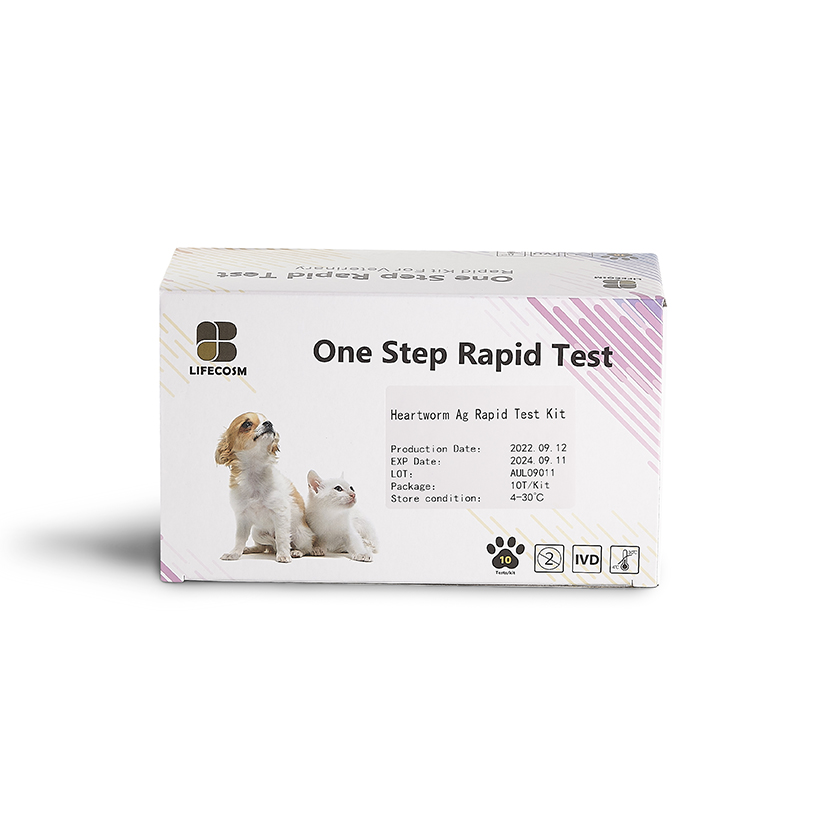| Canine Heartworm Ag Test Kit | |
| Catalog number | RC-CF21 |
| Summary | Detection of specific antigens of canine heartworms within 10 minutes |
| Principle | One-step immunochromatographic assay |
| Detection Targets | Dirofilaria immitis antigens |
| Sample | Canine Whole Blood, Plasma or Serum |
| Reading time | 5 ~ 10 minutes |
| Sensitivity | 99.0 % vs. PCR |
| Specificity | 100.0 % vs. PCR |
| Limit of Detection | Heartworm Ag 0.1ng/ml |
| Quantity | 1 box (kit) = 10 devices (Individual packing) |
| Contents | Test kit, Buffer bottle, and Disposable droppers |
| Caution | Use within 10 minutes after opening Use appropriate amount of sample (0.04 ml of a dropper) Use after 15~30 minutes at RT if they are stored under cold circumstances Consider the test results as invalid after 10 minutes |
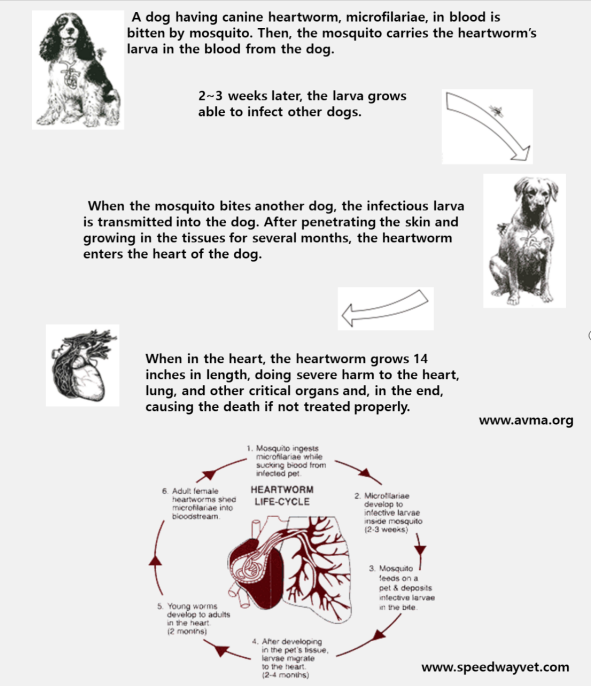

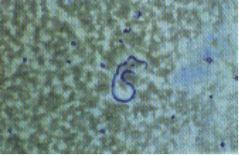
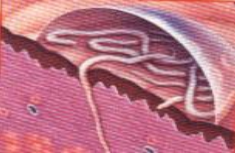
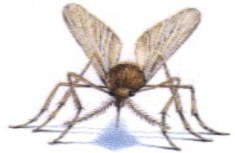 The disease history and clinical data of a sick dog, and various diagnostic methods should be considered in diagnosing the dog. For example, X-ray, ultrasound scan, blood examination, detection of microfilaria and, in worst case, autopsy are required. Serum examination; Detection of antibodies or antigens in the blood Antigen examination; This focuses on detecting the specific antigens of female adult heartworms. The examination is carried out in the hospital and its success rate is high. Test kits available on the market are designed to detect 7~8 month-old adult heartworms so that heartworms younger than 5 months are hard to detect.The infection of heartworms is successfully cured in most cases. To eliminate all heartworms, the use of medicines is the best way. Early detection of the heartworms raises the success rate of the treatment. However, in the late stage of infection, complication can occur, making the treatment more difficult.
The disease history and clinical data of a sick dog, and various diagnostic methods should be considered in diagnosing the dog. For example, X-ray, ultrasound scan, blood examination, detection of microfilaria and, in worst case, autopsy are required. Serum examination; Detection of antibodies or antigens in the blood Antigen examination; This focuses on detecting the specific antigens of female adult heartworms. The examination is carried out in the hospital and its success rate is high. Test kits available on the market are designed to detect 7~8 month-old adult heartworms so that heartworms younger than 5 months are hard to detect.The infection of heartworms is successfully cured in most cases. To eliminate all heartworms, the use of medicines is the best way. Early detection of the heartworms raises the success rate of the treatment. However, in the late stage of infection, complication can occur, making the treatment more difficult. 
